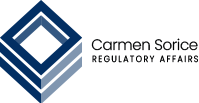The short answer is: no, there is no single, official “FCM certification” issued by a European or Italian regulatory body.
Regulatory framework
- FCMs (Food contact materials) are regulated at the European level by Regulation (EC) No. 1935/2004, also called the FCM Framework Regulation, which sets out the general principles.
- For certain categories of materials (e.g., plastics under Reg. (EU) 10/2011), there are specific harmonized regulations that establish migration limits and other technical requirements.
- In Italy, some decrees supplement these provisions for various types of non-harmonized materials: paper, glass, rubber, stainless steel, aluminium, etc.

What is mandatory
Every business operator must ensure that their FCMs comply with the legislation.
The main obligation is to draft and make available a Declaration of Compliance (DoC), based on adequate supporting documentation:
- traceability and proper documentation of raw materials,
- test results demonstrating compliance with specific rules,
- toxicological and organoleptic evaluations,
- adherence to GMP (Good Manufacturing Practices, Reg. (EC) 2023/2006) with controlled production procedures to ensure material safety.

“FCM Certification”: why are we talking about it?
- Some certification bodies issue voluntary certificates or attestations, primarily based on audits and laboratory tests, demonstrating compliance with regulatory requirements.
- These are not mandatory certifications nor unique at the EU level: they have commercial value and serve as guarantees for customers, not as legal proof.
- Sometimes the term “FCM certification” is used incorrectly; in reality, these are compliance attestations or voluntary certifications related to management systems (e.g., ISO 22000, BRC Packaging, etc.) that include FCMs.

Conclusions
To ensure FCM safety and regulatory compliance:
- There is no official and mandatory “FCM certification”. Compliance with regulatory requirements is demonstrated through a mandatory document, the Declaration of Compliance.
- For FCM manufacturers and distributors, the concrete obligations are to ensure material safety through:
- drafting and making available the Declaration of Compliance (DoC),
- conducting specific tests and toxicological evaluations,
- ensuring traceability of raw materials,
- adopting GMP throughout the production process.
- Voluntary certifications exist and can, in some cases, enhance reliability toward customers and markets.
Operators in the FCM sector should focus on regulatory compliance, safety and traceability, while any voluntary certifications serve as additional guarantees.




